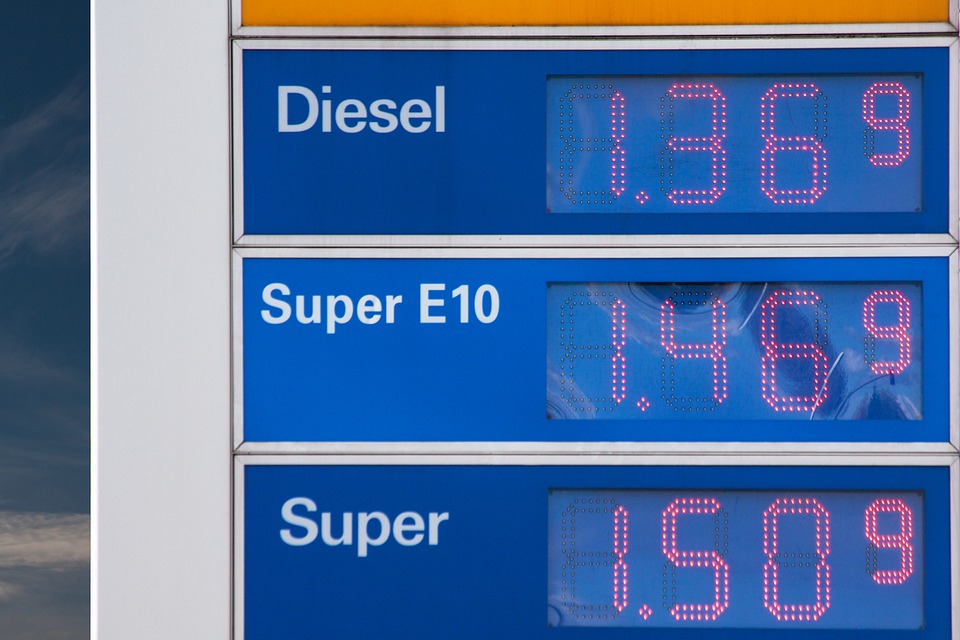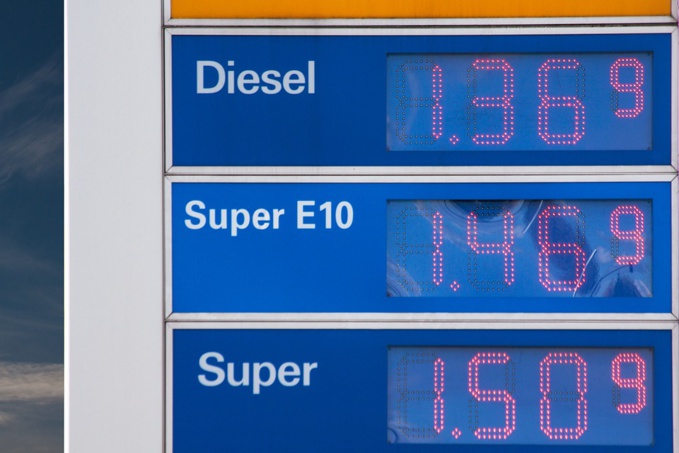Therefore, Quevedo’s statement that Petro will be presented at the next meeting of the representatives of the OPEC member countries in Vienna seems to be very significant.
OPEC’s agenda is usually very short and not focused on discussion, but rather on confirmation of agreements that are formed during the period between the Vienna meetings. So, at the next meeting, which is scheduled for December 6, the proposal of Saudi Arabia to reduce the total production of OPEC by 1 million barrels per day will be confirmed. And Petro is still in question.
What does this mean? At the OPEC meeting, Venezuela will be similar to Iran, which is restricted by serious US financial sanctions. Iran’s economic system is cut off from dollars - the currency in which oil is not only traded, but also nominated, if you look at the quotes of the main varieties, WTI and Brent. It has become impossible for Tehran and Caracas to get money for oil. In such a situation it is logical that any kind of money (including cryptocurrency) will do.
For Caracas, the situation was aggravated by the fact that the Bank of England refused to return their gold reserves in the amount of 15 tons, citing the fact that potential transactions that could be made with the metal, that is, selling it for dollars, would violate US sanctions. London is worried that their actions could at least indirectly lead to the fact that Caracas would violate American sanctions.
However, even if the Venezuelan authorities say they are ready to sell gold for Petro, the British Central Bank will not give up the gold anyway, since the same US sanctions are imposed on the state cryptocurrency of the Bolivarian Republic.
It seems to be a dead end, but that is why Caracas does not refuse the option to receive any cryptocurrency for its goods as transactions with Bitcoin have not yet been banned by the US authorities.
Does the question of finding alternatives to the US dollar concern other OPEC countries? Of course not, however, Caracas with its Petro can gradually form a circle of countries that are looking for an alternative to the US dollar and which will thereby begin to violate American sanctions.
OPEC countries account for about 40% of the world oil production market, and therefore understanding of the issue of switching to Petro should be sought outside this organization.
The idea of Caracas would be favored in Bolivia, the Philippines and the Marshall Islands. In the first case, it is about the fact that the head of Bolivia, Evo Morales, had a quarrel with the US authorities over development of lithium reserves. In the Philippines, Rodrigo Duterte is one of the clearest examples of finding a “own path” for a state in the Pacific region.
Finally, the Marshall Islands authorities essentially agreed that their country would be cut off from the dollar-based transaction method, strictly ignoring warnings from the IMF. This issue was particularly acute due to the fact that a referendum was used to put pressure on the country, which raised the question of trust in President of Marshall Islands Hilda Heine, including in connection with her plans to develop the SOV cryptocurrency. As a result, the politician won but with difficulty.
source: reuters.com
OPEC’s agenda is usually very short and not focused on discussion, but rather on confirmation of agreements that are formed during the period between the Vienna meetings. So, at the next meeting, which is scheduled for December 6, the proposal of Saudi Arabia to reduce the total production of OPEC by 1 million barrels per day will be confirmed. And Petro is still in question.
What does this mean? At the OPEC meeting, Venezuela will be similar to Iran, which is restricted by serious US financial sanctions. Iran’s economic system is cut off from dollars - the currency in which oil is not only traded, but also nominated, if you look at the quotes of the main varieties, WTI and Brent. It has become impossible for Tehran and Caracas to get money for oil. In such a situation it is logical that any kind of money (including cryptocurrency) will do.
For Caracas, the situation was aggravated by the fact that the Bank of England refused to return their gold reserves in the amount of 15 tons, citing the fact that potential transactions that could be made with the metal, that is, selling it for dollars, would violate US sanctions. London is worried that their actions could at least indirectly lead to the fact that Caracas would violate American sanctions.
However, even if the Venezuelan authorities say they are ready to sell gold for Petro, the British Central Bank will not give up the gold anyway, since the same US sanctions are imposed on the state cryptocurrency of the Bolivarian Republic.
It seems to be a dead end, but that is why Caracas does not refuse the option to receive any cryptocurrency for its goods as transactions with Bitcoin have not yet been banned by the US authorities.
Does the question of finding alternatives to the US dollar concern other OPEC countries? Of course not, however, Caracas with its Petro can gradually form a circle of countries that are looking for an alternative to the US dollar and which will thereby begin to violate American sanctions.
OPEC countries account for about 40% of the world oil production market, and therefore understanding of the issue of switching to Petro should be sought outside this organization.
The idea of Caracas would be favored in Bolivia, the Philippines and the Marshall Islands. In the first case, it is about the fact that the head of Bolivia, Evo Morales, had a quarrel with the US authorities over development of lithium reserves. In the Philippines, Rodrigo Duterte is one of the clearest examples of finding a “own path” for a state in the Pacific region.
Finally, the Marshall Islands authorities essentially agreed that their country would be cut off from the dollar-based transaction method, strictly ignoring warnings from the IMF. This issue was particularly acute due to the fact that a referendum was used to put pressure on the country, which raised the question of trust in President of Marshall Islands Hilda Heine, including in connection with her plans to develop the SOV cryptocurrency. As a result, the politician won but with difficulty.
source: reuters.com



















